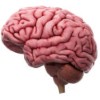Cardio-Oncology is affiliated with the International Cardio-Oncology Society (ICOS).
Cardiovascular events in CML patients treated with Nilotinib: validation of the HFA-ICOS baseline risk score
The therapeutic landscape of chronic myeloid leukaemia (CML) has been transformed by tyrosine kinase inhibitors (TKI). Nilotinib, showed higher rates of major molecular response than imatinib, however associat...






